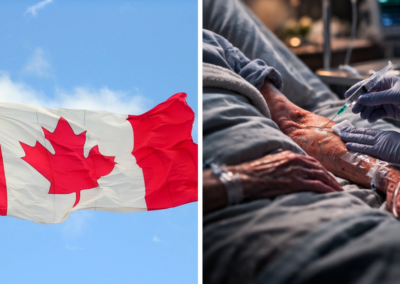A bill seeking to ban sex-selective abortion is gaining momentum in Canada, ahead of International Day of the Girl on 11 October.
Introduced in February, by Cathy Wagantall MP, the Sex Selective Abortion Act would prohibit medical professionals from performing abortions “knowing that the abortion is sought solely on the grounds of the child’s genetic sex.”
The Yorkton-Melville MP said: “in a country which seeks to foster equality between men and women, the practice of using abortion for sex selection needs to be prohibited”
This bill represents the third time in the past eight years that MPs have attempted to ban sex-selective in Canada. The last attempt was put forward by Wagantall in 2016, but was defeated in the House of Commons by a vote of 209-76.
According to Wagantall and a poll in the National Post, the difficulties the bills have faced is not due to a lack of public support, but rather parliamentarians on all sides being unwilling to discuss and debate laws regarding abortion.
“Canadians of nearly all beliefs are united on this issue, with 84 percent stating that sex-selective abortion should be illegal,” she said.
“This is reasonable common ground that every Member of Parliament must thoughtfully consider.”
“If just one girl is aborted simply because of her sex, parliamentarians must act.”
Growing support in British Columbia
Recently, the Yorkton-Melville MP was joined by MPs Tamara Jensen and Tako Van Popta at Pink Flag Display events to raise awareness of sex-selective abortion.
The three events, which displayed hundreds of pink flags to represent missing female births, were arranged to show support of the bill in alliance with DefendGirls.com, an initiatve of pro-life group We Need a Law.
In a post on Facebook, Jensen posted photos of the event commenting, “I believe politicians of all political stripes should be willing to stand up for women and girls, and oppose this practice!”
Since amending its abortion law in 1988, sex-selective abortion has become a major issue in Canada.
An article in the Canadian Medical Association Journal describes how “easy access to abortion and advances in prenatal sex determination have combined to make Canada a haven for parents who would terminate female fetuses in favour of having sons…”.
A global issue
Sex-selective abortion is a well-documented problem in countries around the world, resulting in highly skewed sex ratios.
Despite laws banning pre-natal sex detection and sex-selective abortion in India, it is estimated that 6.8 million girls will be aborted between 2017 and 2030.
This is in addition to a report from India’s Government that revealed an estimated 63 million women were already “missing” from the country’s population.
Evidence of sex-selective abortions has been found in the Australian territory of Victoria, which introduced abortion on request in 2008.
Following the law change in Victoria, Dr Mark Hobart was investigated by the Medical Board of Victoria for failing to refer a woman for a sex-selective abortion. Additionally, Australian broadcaster SBS revealed there are higher numbers of boys than girls being born in some ethnic communities in Australia.
A recent study from La Trobe University, analysing more than a million births in Victoria, suggests some parents could be aborting unborn female babies in order to have a son.
Sex-selective abortion in the UK
In the UK, shadow Minister Naz Shah has previously called for the Government to stop the misuse of Non-invasive Prenatal Test (NiPT) after evidence emerged they were being used to abort pregnancies based on gender.
The Labour MP said: “The government needs to look into this exploitative practice and enforce appropriate restrictions.”
However, Ms Shah is presumably okay with disability-selective abortions as she also said: “NIPT screenings should be used for their intended purpose, to screen for serious conditions and Down’s syndrome.”Polling, conducted by Savanta ComRes, showed 89% of the general population and 91% of women agree that gender-selective abortion should be explicitly banned by the law.












